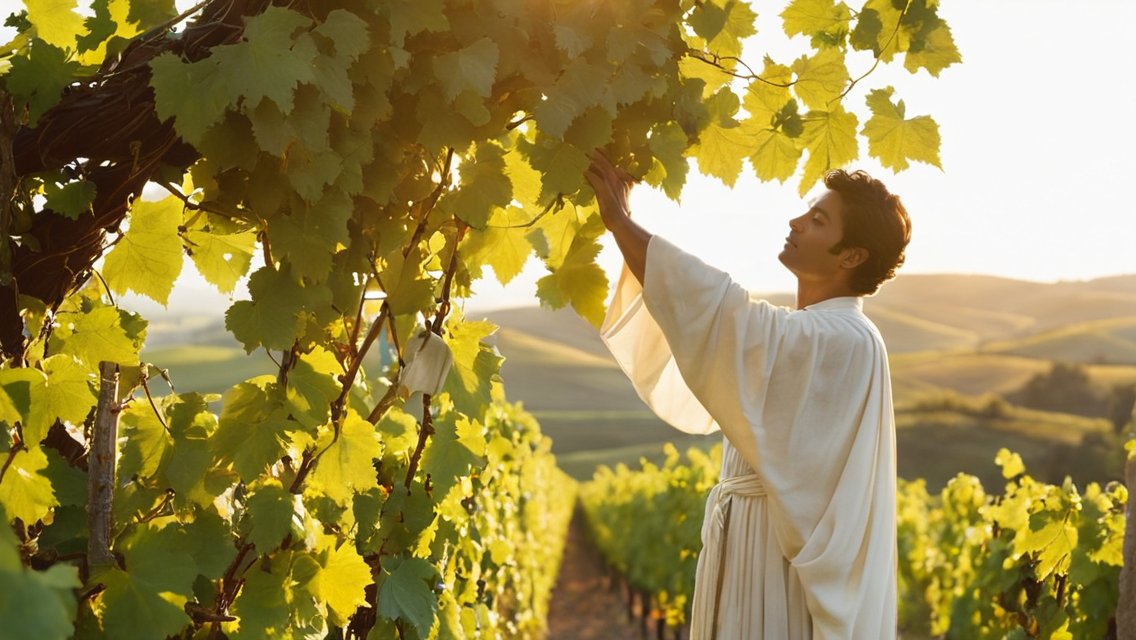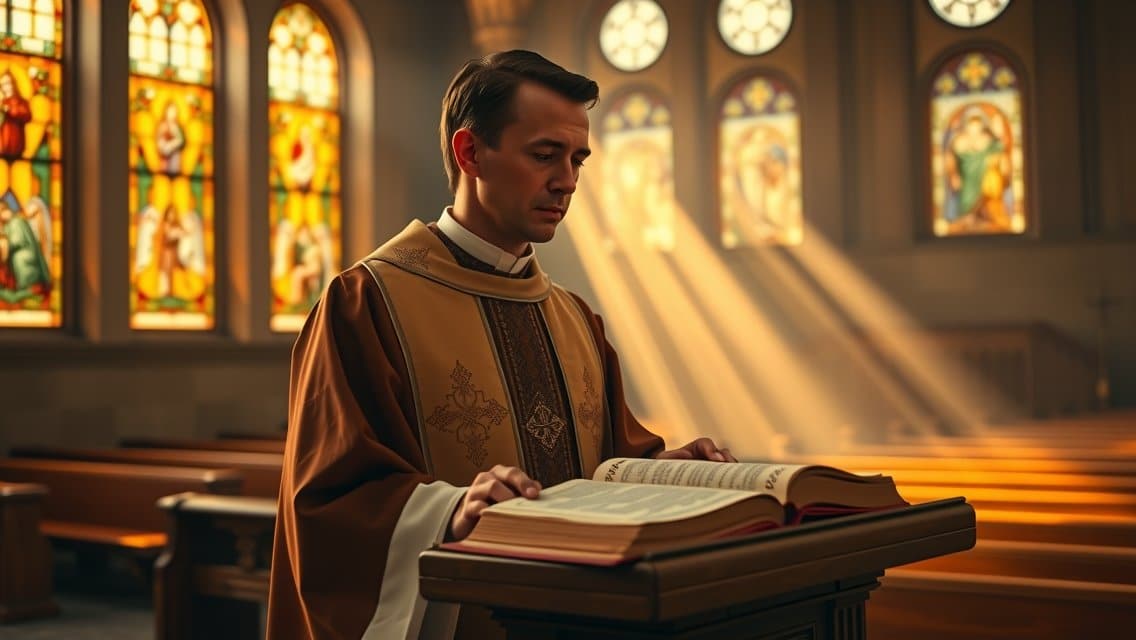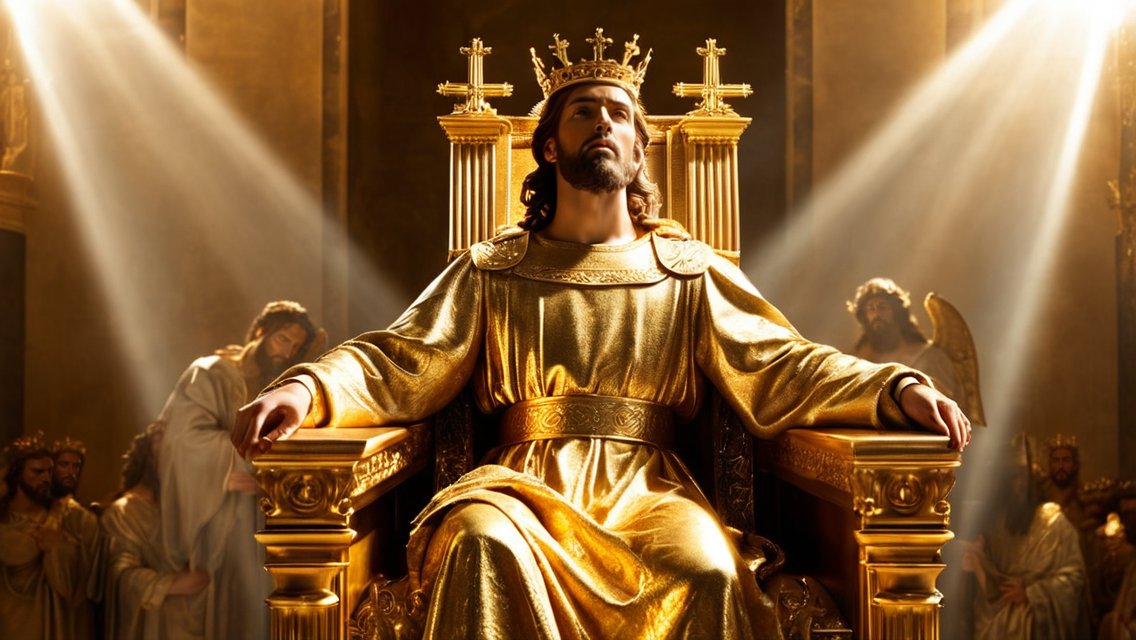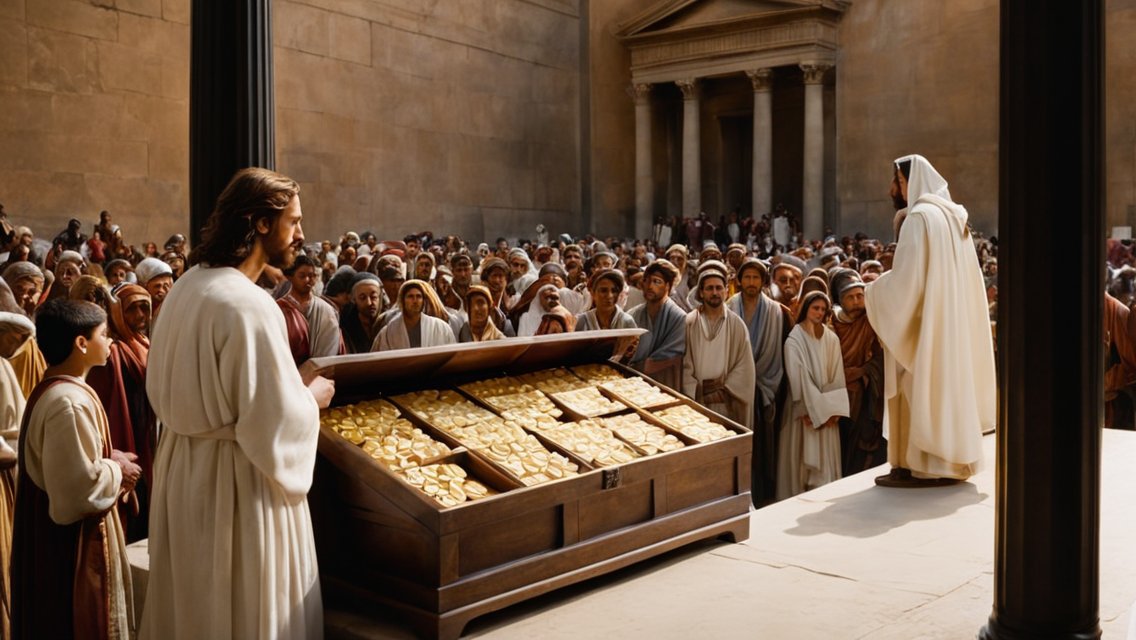Fifth Sunday of Easter Homily – Year B
Readings: Acts 9:26-31, 1 Jn 3:18-24, Jn 15:1-8
1st Reading – Acts 9:26-31
26 When Saul arrived in Jerusalem he tried to join the disciples, but they were all afraid of him, not believing that he was a disciple.
27 Then Barnabas took charge of him and brought him to the apostles, and he reported to them how he had seen the Lord, and that he had spoken to him, and how in Damascus he had spoken out boldly in the name of Jesus.
28 He moved about freely with them in Jerusalem, and spoke out boldly in the name of the Lord.
29 He also spoke and debated with the Hellenists, but they tried to kill him.
30 And when the brothers learned of this, they took him down to Caesarea
and sent him on his way to Tarsus.
31 The church throughout all Judea, Galilee, and Samaria was at peace. It was being built up and walked in the fear of the Lord, and with the consolation of the Holy Spirit it grew in numbers.
Responsorial Psalm – Psalms 22:26-27, 28, 30, 31-32
R. (26a) I will praise you, Lord, in the assembly of your people.
or:
R. Alleluia.
26 I will fulfill my vows before those who fear the LORD.
27 The lowly shall eat their fill;
they who seek the LORD shall praise him:
“May your hearts live forever!”
R. I will praise you, Lord, in the assembly of your people.
or:
R. Alleluia.
28 All the ends of the earth
shall remember and turn to the LORD;
all the families of the nations
shall bow down before him.
R. I will praise you, Lord, in the assembly of your people.
or:
R. Alleluia.
30 To him alone shall bow down
all who sleep in the earth;
before him shall bend
all who go down into the dust.
R. I will praise you, Lord, in the assembly of your people.
or:
R. Alleluia.
31 And to him my soul shall live;
my descendants shall serve him.
32 Let the coming generation be told of the LORD
that they may proclaim to a people yet to be born
the justice he has shown.
R. I will praise you, Lord, in the assembly of your people.
or:
R. Alleluia.
2nd Reading – 1 John 3:18-24
18 Children, let us love not in word or speech but in deed and truth.
19 Now this is how we shall know that we belong to the truth and reassure our hearts before him
20 in whatever our hearts condemn, for God is greater than our hearts and knows everything.
21 Beloved, if our hearts do not condemn us, we have confidence in God
22 and receive from him whatever we ask, because we keep his commandments and do what pleases him.
23 And his commandment is this: we should believe in the name of his Son, Jesus Christ, and love one another just as he commanded us.
24 Those who keep his commandments remain in him, and he in them, and the way we know that he remains in us is from the Spirit he gave us.
Alleluia – John 15:4A, 5B
R. Alleluia, alleluia.
4A Remain in me as I remain in you, says the Lord.
5B Whoever remains in me will bear much fruit.
R. Alleluia, alleluia.
Gospel – John 15:1-8
Jesus said to his disciples:
1 “I am the true vine, and my Father is the vine grower.
2 He takes away every branch in me that does not bear fruit, and every one that does he prunes so that it bears more fruit.
3 You are already pruned because of the word that I spoke to you.
4 Remain in me, as I remain in you. Just as a branch cannot bear fruit on its own unless it remains on the vine, so neither can you unless you remain in me.
5 I am the vine, you are the branches. Whoever remains in me and I in him will bear much fruit, because without me you can do nothing.
6 Anyone who does not remain in me will be thrown out like a branch and wither; people will gather them and throw them into a fire and they will be burned.
7 If you remain in me and my words remain in you, ask for whatever you want and it will be done for you.
8 By this is my Father glorified, that you bear much fruit and become my disciples.”
Homily
Jesus or Luda’s? Incarnation or incarceration?
“Abide in me and I in you” (In)
So far, we’ve been used to reading and reflecting upon four gospels. But, around Easter-time 2005, Dan Brown’s Da Vinci Code aroused interest in the gospel of Mary Magdalene. Easter 2006, everyone was raving about the gospel of Judas. Was Judas a ‘favoured one’ who did Jesus a favour by handing him over to be crucified at Jesus’ own behest? As alleged, do you think Jesus told Judas, “You will exceed them all for you will sacrifice the man that clothes me? Was Jesus God Incarnate (God-man)? Or, was he a ‘Gnostic’ whose spirit (divinity) was incarcerated in a body (man)? If Jesus were a Gnostic, then all he said or did with regard to the body was niake-believe since the ‘real thing’ was only ‘spirit’.
Even a cursory reading of the gospels will indicate that Jesus was deeply concerned about the human body. If he were not, why would he raise the dead to life? in fact, if Jesus. were a Gnostic, he would have delighted in people’s deaths since death would hasten the freeing of one’s spirit from one’s body-prison. Interestingly, Jesus’ imagery of ‘vine and branches’ in today’s gospel suggests quite the opposite. In sum, like this vine-branches’ ‘organic unity’, Jesus says we must all be united with Him, body-and soul, to have Life.
Dichotomizing or divorcing body-soul is dangerous. We’re neither ‘soulless bodies’ nor ‘bodiless souls’. Every person is body-and-soul. Thus, when we confess that “The Word became flesh” we say that God (Jesus) became one like us. Yes, Jesus is God’s Word anointed/animated by God’s Spirit. And, today, Jesus’ ‘Mystical Body’ the Church is to be Jesus’ Spirit-filled Body animating the world as leaven, as light.
The image of vine-branches is very apt for the Christ-Church relationship. Just as a branch cut off from the bark dries up and dies, so do we, members of the Church, dry up and die (morally and spiritually) if we distance ourselves from Him. “Abide in me,” says Jesus, “and you will bear fruit.”
The first reading ends with: “The Church throughout all-Judea, Galilee and Samaria was built up; and, walking in the fear of the Lord and in the comfort of the Holy Spirit, it was multiplied.” This Church multiplied (produced fruits) since it was “built up” by the Lord-and-Spirit. The Master Builder is constantly building up our churches, today, too. But, we must be with Him.
The second reading reminds us of the inseparable bond between words and works. In order to abide in Christ we must not merely ‘confess’ him as Lord, but ‘commit’ ourselves to Him in our own commitment to love one another as He loved us. John also tells us that the Spirit abides in us as Indweller, the Antarayami.
In any ‘organic unity’ you cannot randomly cut off parts without doing harm to the whole body. So there is need for each of us to see ourselves organically bound to each other and to the Head, Jesus, animated by the breath of the Spirit. Let us always strive to remain a living and loving Body that will foster Life in society in the abundance envisaged by Our Lord Jesus.





